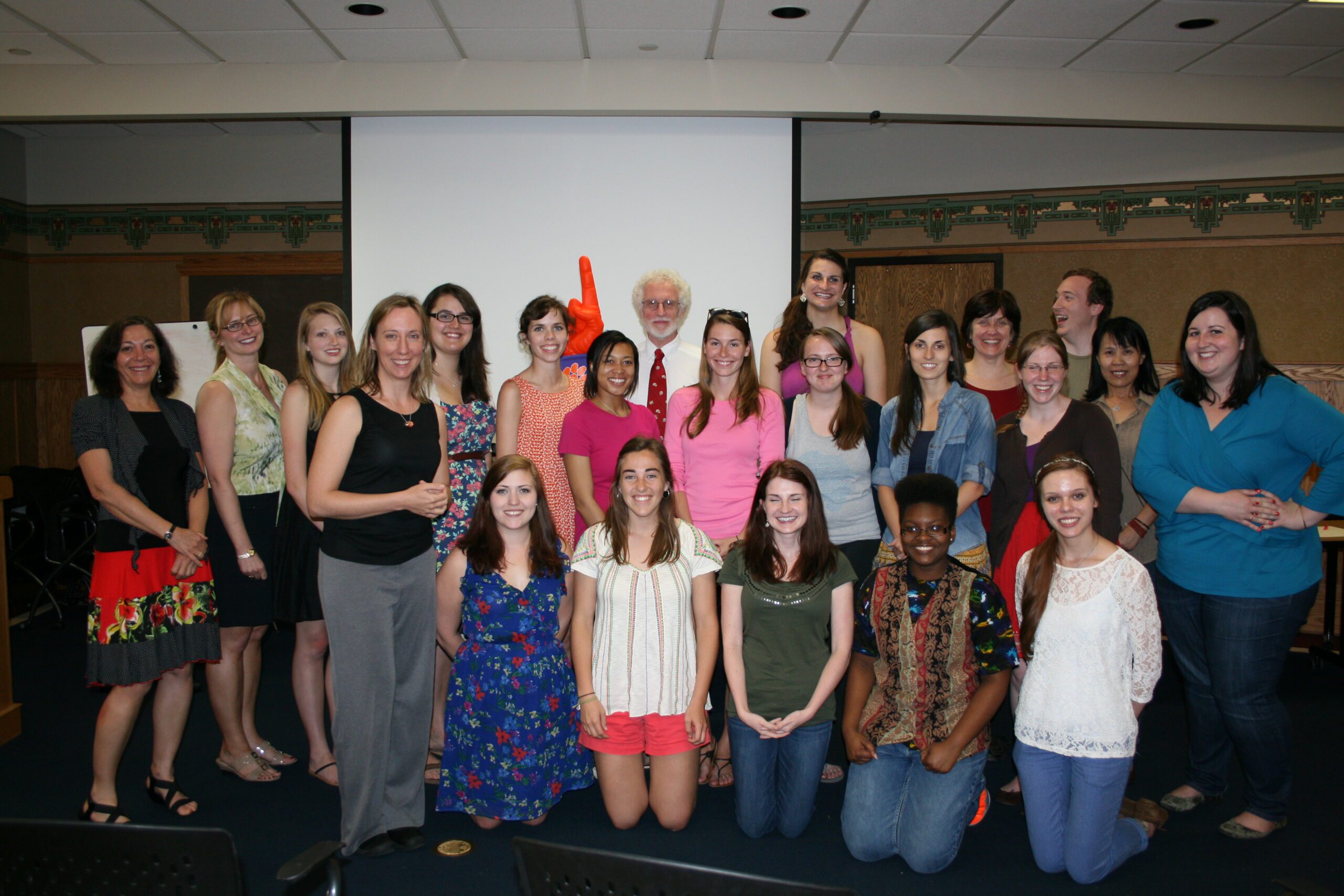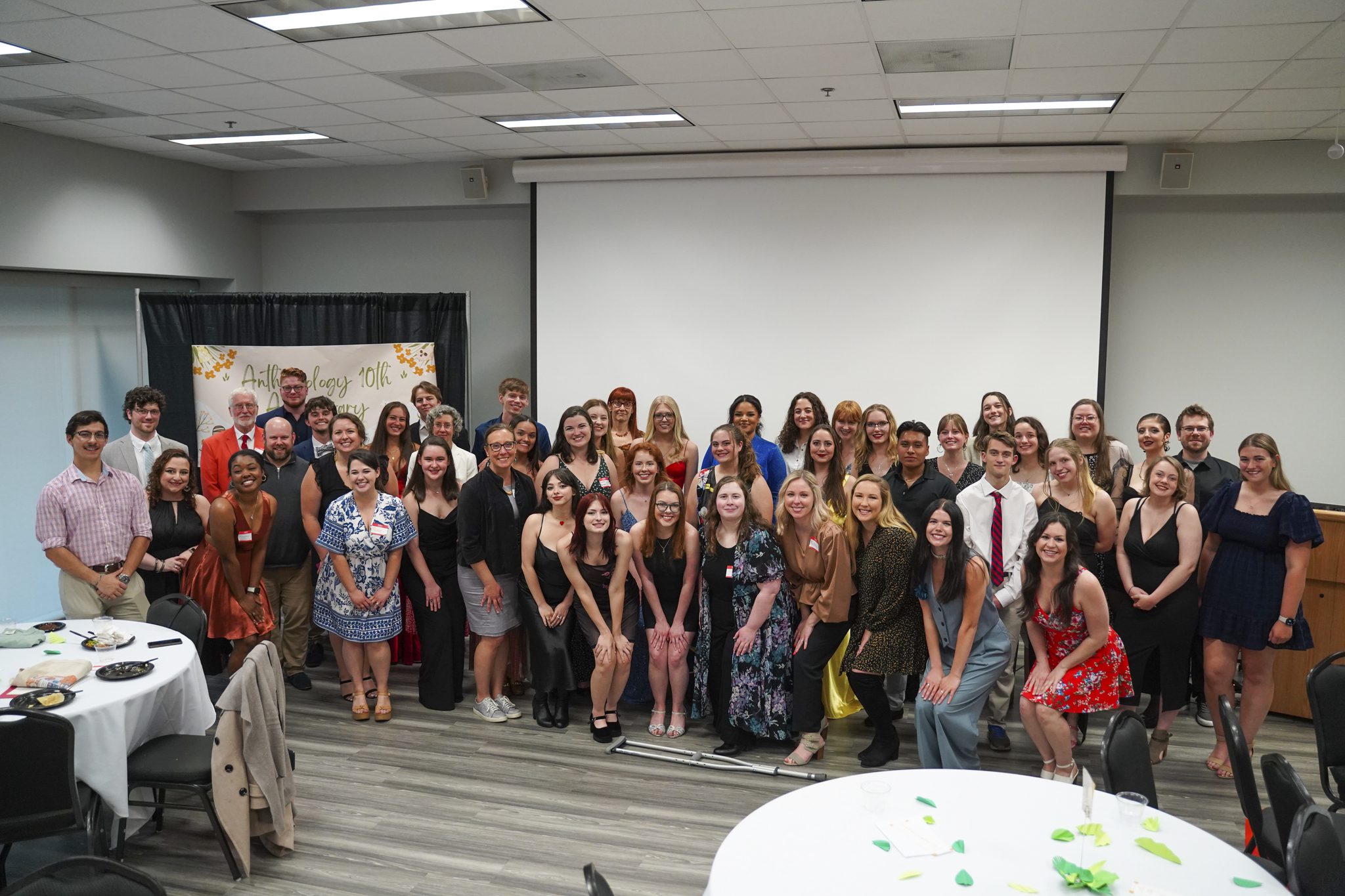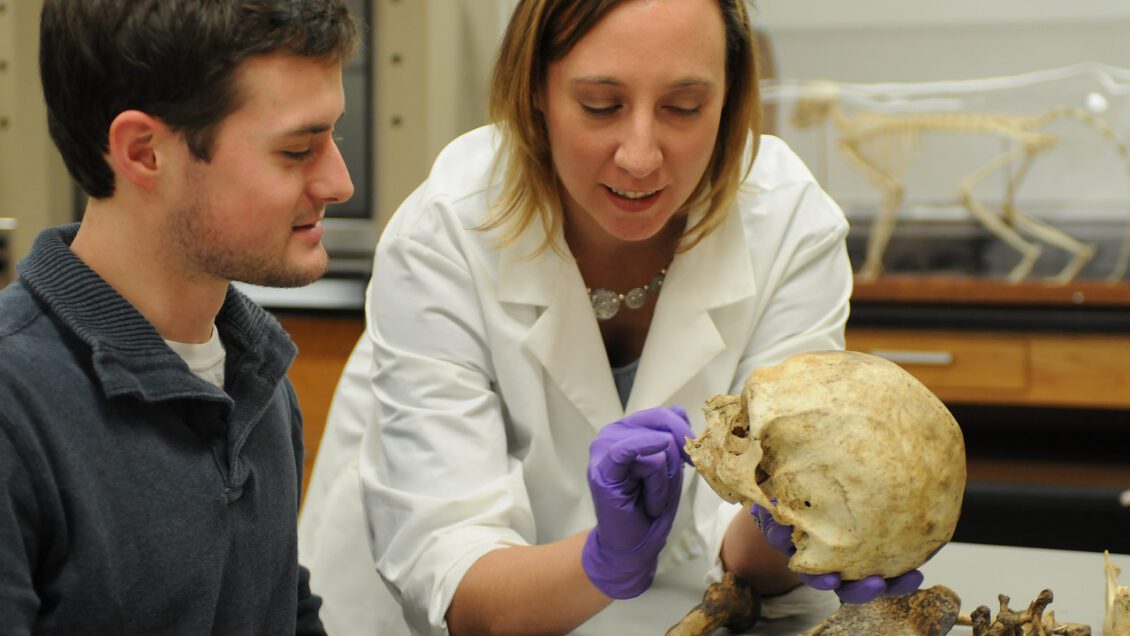In 10 years, the Clemson Anthropology program has established itself as a unique major with many opportunities for students outside the classroom
A pile of dirt. A freshly covered grave and an open grave with a plastic skeleton dressed to look like a construction worker sit in a field on the edge of Clemson University’s main campus. No, it is not a crime scene, but a field school on human remains recovery through the Department of Sociology, Anthropology and Criminal Justice’s anthropology program.
In this particular class, students learn the basics of forensic anthropology – interpreting crime scenes and solving the mystery of cause of death by looking at what was buried around a person and the position of their bones in the ground.
Anthropology is the study of humans, and students in Clemson’s anthropology program are able to take classes in all four subfields of anthropology – archaeology, biological-anthropology, linguistic and cultural.
Classes such as World Archaeology, Forensic Anthropology, Language and Culture, and North American Indian Cultures offer students the opportunity to explore each of the four anthropological concentrations.
“Sharing expertise across all subfields of anthropology is beneficial to students’ education and enhances their understanding of humans in general,” said Katherine Weisensee, chair of the Department of Sociology, Anthropology and Criminal Justice.
The program offers a variety of classes, as well as a Bachelor of Science and Bachelor of Arts for anthropology majors, making it unique among other programs in the state.
When anthropology professor John M. Coggeshall first came to Clemson in 1988, he never imagined that the department would grow as it has. In fact, when he first came to Clemson, anthropology was not even a minor.
“There were three anthropology courses already on the books, but the Intro to Anthropology class was not even listed as a general social science course,” Coggeshall said. “So, one of my first battles was to try to get anthropology listed as a general social science course in the course catalog.”








Needless to say, Coggeshall was successful in meeting that goal, so his ultimate goal was to get anthropology established as a major.
“I wanted the University to be proud of an anthropology major, I wanted the department to be proud of our major, and I wanted our students to be proud of their major,” he said.
In the spring of 2013, he was able to help make that happen. From two anthropologists, the program has grown to have six dedicated anthropology instructors and more than 40 majors.


Like Coggeshall, Weisensee has been with the anthropology major since the beginning – and with the department since 2008. With field schools and equipment like ground penetrating radar and 3-D cameras that capture human skeletal variation, study abroad trips in Hungary and other international locations to study skeletons, the program has grown immensely from just a handful of classes.
In the anthropology program, students have the unique opportunity to excavate archeological sites on campus, participate in internships with local coroners’ offices, interview veterans and work with local communities to tell their stories in history – all of which result in a well-rounded education. We have developed a strong foundation over the last 10 years, and we hope to build upon that by continuing to offer our students unique experiential learning opportunities.
Katherine Weisensee, Department chair
These opportunities are what make alumna Kristin Buhrow proud of her degree in anthropology, just like Coggeshall hoped for his students. After graduating from Clemson in 2016, Buhrow earned a master’s degree in Tibetan and Himalayan Studies from the University of Oxford in England. Later, she worked as a content specialist at the University of Virginia’s Tibetan & Himalayan Library and has recently returned to school to get a Ph.D. in anthropology from Emory University.
“Anthropology classes at Clemson taught me foundational anthropological theories and methods. However, the best preparation for my career – and the experiences I still remember and pull from the most – were opportunities offered by my professors outside of class,” Buhrow said. “Working as a UPIC intern and research assistant gave me real research experience and insight on the publication process.”
Like Buhrow, senior anthropology major Skylar McGinnis has taken advantage of the opportunities provided to her as well as the connections with her professors.
“I have been inspired by all of my professors at Clemson,” McGinnis said. “One day, I hope to be a professor and work with Native American grave repatriation as well as missing persons awareness, as it is an overlooked but important part of our country’s history and a wonderful thing that anthropology can do for other people.”







From the time that Buhrow was a student to McGinnis’s time in the program, a lot has changed, but one thing has not– the dedication of the faculty. The camaraderie of the professors and students is one of McGinnis’s favorite things about the program.
“It is really obvious that the professors want us to succeed more than anything,” McGinnis said.
Buhrow follows the Anthropology Club on social media and has enjoyed seeing her alma mater program grow through the years.
“It has been heartwarming to see that, even while expanding, the program seems to have retained its genuine sense of home and authentic camaraderie that made my time at Clemson so transformative and special,” Buhrow said. “I hope the program continues to grow and excel and that, no matter how big and successful it gets, the anthropology lounge remains the best place to hang out, study and find unexpected pizza.”
The Department of Sociology, Anthropology and Criminal Justice is a part of the College of Behavioral, Social and Health Sciences, a 21st-century land-grant college joining together a unique combination of schools and departments: Communication, Nursing, Parks, Recreation and Tourism Management, Political Science, Psychology, Public Health Sciences and Sociology, Anthropology and Criminal Justice. These areas have distinctive characteristics and missions – all joined together by a common thread of service to people and communities.
Get in touch and we will connect you with the author or another expert.
Or email us at news@clemson.edu

